 |
Mythology of Place - Homage to James K Baxter - © 1993-94 - Lloyd Godman - Lawrence Jones
introductions - the three worlds of James K Baxter
| James
K. Baxter and His Family
Lawerence Jones
Although best
known for the writings and social witness of the younger son, James
K, Baxter, the Baxter family made many and varied contributions
to the little community of Brighton and to the wider Otago and New Zealand communities. Archibald
McColl Learmond Baxter (1881-1970) was born 13 December 1881 in
his grandfather McColl's sod cottage on a farm in the Brighton
district. On both sides of his family he was related to early
Scottish highlander settlers in the area, His paternal grandfather,
John Baxter, first arrived in Otago from Rothesay in 1861, while
his maternal grandfather, Archibald McColl, arrived from Ballachulish
in 1859. His father, also John, married Mary McColl in 1879.
There were six other male sons from the marriage and one daughter.
Archibald as a young man worked in Central Otago as rabbiter and
ploughman until he got a small farm on Scroggs
Hill. |
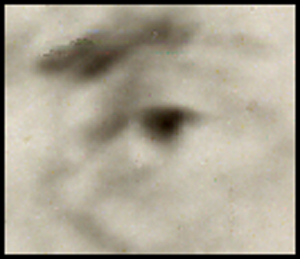 |
He
was a successful farmer and a community leader, but his life was
disrupted by World War I. He was, as a convinced and
outspoken socialist and pacifist, conscientiously opposed
to conscription, leading to his arrest, along with that of his five
unmarried brothers, early in 1917 for non-compliance. He and
his brothers Jack and Sandy, after brief imprisonment in Wellington,
were sent against their wills on a troopship to England in an attempt
to force them to comply with the military. He consistently
refused military orders but was forcibly sent to France and then
Belgium, where he was subjected to the cruelty of No. 1 Field Punishment,
then sent to the front to be exposed to artillery fire, and finally
confined to a mental hospital to try to force compliance.
He stuck to his beliefs, however, and was sent home late in
1918. These experiences are movingly and simply described
in his autobiographical We Will Not Cease, first published in 1939.
On his return to Otago Archibald worked as a rabbiter and causal
labourer. |
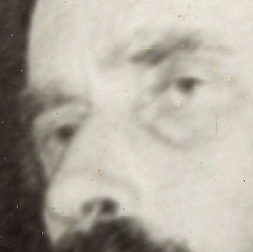 |
In 1920 Archibald
met Millicent Amiel Brown (1888-1984), daughter of John Macmillan Brown,
foundation Professor of English and Classics at Canterbury University
College, and of Helen Connon Brown, the first woman honours graduate from
a British Empire university and Principal of Christchurch Girls' High
School. Born in Christchurch 8 January 1888, Millicent lost
her mother when she was fifteen, was zealously pushed by her father to
a university education at the University of Sydney and Newnham
College, Cambridge. After her return to New Zealand she lived with
her father in Christchurch and, in 1920, in Dunedin, acting as his hostess
and sometime teaching assistant. Millicent and Archibald were
married, against her father's wishes, in Dunedin on 2 February 1921.
Late in that year Archibald bought a small
farm at Kuri Bush, where they lived until 1931. The first
son, Terence John, was born in Dunedin 23 May 1922, followed by the birth
of James Keir, also in Dunedin, 29 June 1926. For health reasons
Archibald sold the farm in 1931 and bought a house
in Brighton. He retired from farming but did casual labour,
the family's income being augmented in 1935 by an annuity to Millicent
after the death of her father. In Brighton Archibald and Millicent
were both active in community affairs and in the peace movement, while
Terence and James had the kind of seaside upbringing described in James's
poems. In 1935 the family shifted to Wanganui, where both boys attended
Friends' School. In 1937 they all went to England, where the boys
attended Sibford School and Archibald wrote We Will Not Cease.
The family returned to New Zealand in late 1938 and took up residence
in Brighton again. James attended Friends' School again and then
Kings High School in Dunedin, while Terence went to work in Dunedin.
Terence, like his father, was a conscientious objector to war, and in
1941 was sentenced to Defaulter's Detention for the duration of the war
for refusing military service. James, who had been a precocious
writer of poetry, began to receive publication in 1944 when he attended
the University of Otago, and in early 1945 his first book, Beyond the
Palisade, appeared. Immediately he was recognised as New Zealand's
leading younger poet. |
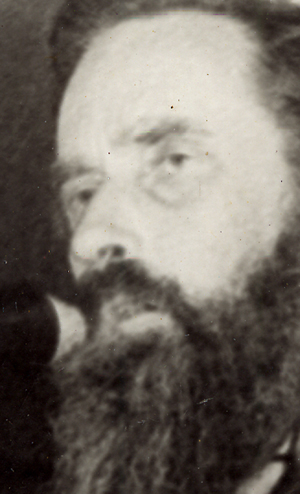
Photograph Lloyd Godman 1971 |
Following
the War, Terence and James moved out to form their own families.
Terence married Lenore Bond on 22 August 1947 in Dunedin and settled into
a life of worker and family man. They had three children, Kenneth,
Katherine, and Helen. James, to his mother's distress, dropped out
of university and did various casual labouring jobs, taking advantage
of what bohemian life Dunedin could offer. Late in 1947 he
went to Christchurch, where he attended Canterbury University College
intermittently and published in 1948 his second volume, Blow, Wind of
Fruitfulness. On 9 December 1948 in Napier he married Jacqueline
Sturm, whom he had first met when she was a student at the University
of Otago. The couple settled in Wellington from late 1948 to 1965.
In those years their two children, Hilary and John, were born, and James
consolidated his position as poet with such books as The Fallen House
(1953), Howrah Bridge and other poems (1958), and Pig Island Letters (1966)
and also wrote works of literary criticism and several plays. In
these years he radically changed his life style, joining Alcoholics Anonymous
and the Catholic Church, finishing a university degree at Victoria
University College and a teacher training course at Wellington Teachers
College, and working as a teacher, an editor at School Publications, and
later as a postman. In 1966 and 1967 he returned with his family
to Dunedin as Robert Burns Fellow at the University
of Otago and remained in 1968 to work in the Catholic Education
Office.
|
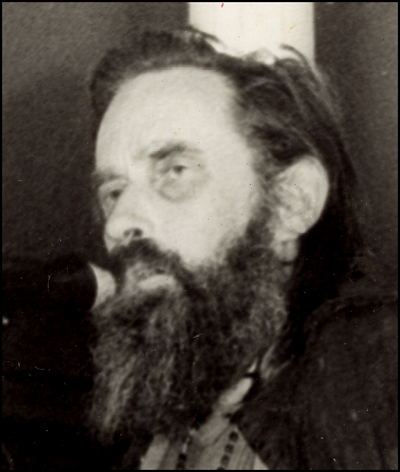
Photograph Lloyd Godman 1971 |
During these Dunedin years he wrote much poetry and
also a substantial group of plays that were produced by Patric Carey at
the Globe Theatre. From 1969 his life took another sharp turn as
he felt called to leave his family and make a radical social witness as
an advocate of voluntary poverty and communal living based on his interpretation
of the spiritual aspects of Maori communal life. First in Auckland,
then at the little settlement of Jerusalem on the Wanganui River, briefly
in Wellington, and then again at Jerusalem he gathered open communities
for social drop-outs, and became a controversial national figure.
Finally, exhausted and in ill health, he went to Auckland, where he died
22 October 1972. Jersualem Sonnets (1970), Jerusalem Daybook (1971),
and Autumn Testament (1972) were the main books from this final period.
His Collected Poems appeared posthumously in 1980, and the Collected Plays
in 1982.
During these postwar years, Archibald and Millicent
remained together in Brighton in a life of active retirement. Both
were accepted into the Catholic Church in 1965. Upon Archibald's
death in August 1970, Millicent shifted into a small house in Dunedin,
where she remained involved with the Church and peace organisations
and other social concerns, independent but looked after by Terence and
by her friends, until her death on 3 July 1984.
Sources:
Frank McKay, The Life of James K. Baxter (Auckland:
Oxford University Press, 1990)
Millicent Baxter, The Memoirs of Millicent Baxter (Whatmongo
Bay: Cape Catley, 1981) |
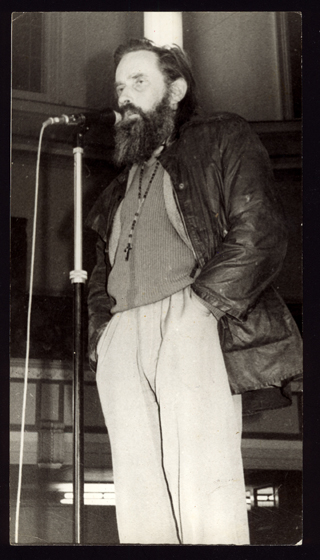
James K Baxter at Impulse 71
Photograph Lloyd Godman 1971
In
the year before Baxter's death I had the chance to meet him once in person
at the Catholic Administration centre where we spoke briefly and then when he spoke at Impulse 71 at the town hall in Dunedin. It was also at this time when I became interested in photography. Somehow in my archive of images from this period this image survived
Lloyd
Godman |
|
|